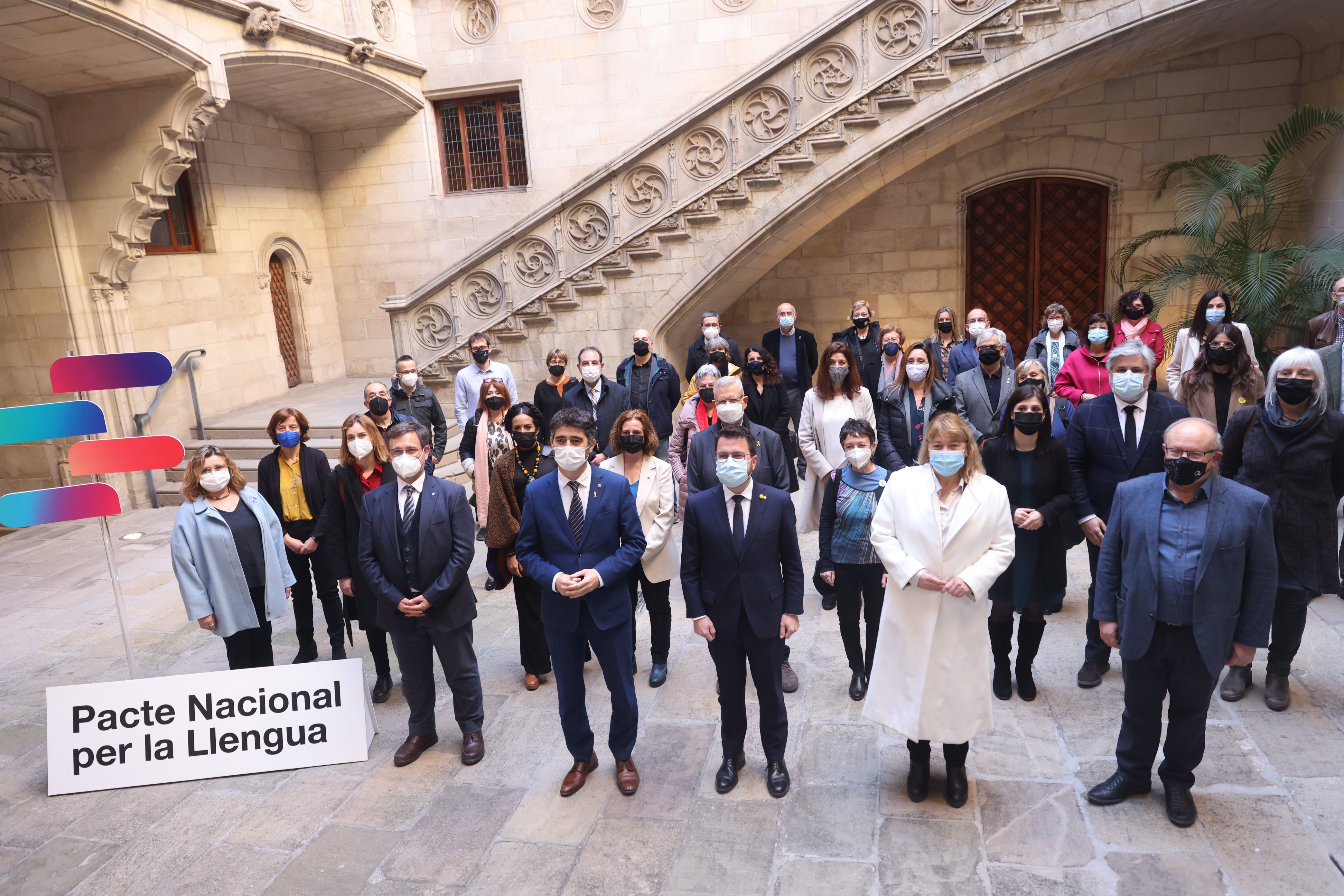The Catalan language is showing "worrying trends". Between 2003 and 2018, the group of "usual speakers" of the language fell by 280,000, according to an academic report by the Catalan culture ministry's language policy area. The report makes a clear diagnosis of the situation of Catalan, which is losing more and more everyday users. This Tuesday, Catalonia's National Pact for the Language has met for the first time, in a meeting between representatives of the Catalan government, political parties and organizations which aim to promote and defend the language. This Pact seeks to strengthen the use of Catalan and try to reverse the degradation that the report confirms.
The text warns of a generalised decline in the use of Catalan: between 2003 and 2018, average use fell by 7.4 percentage points, from 48.5% to 41.1%. One of the great challenges is "the ability to manage demographic change" in Catalonia, a land which has received 1.5 million new citizens in two decades, and for this purpose it proposes to guarantee the use of Catalan in the processes of professional and occupational training, and to reverse its low levels of presence in social media and audiovisual content, consumed in particular by young people. Given this situation, it proposes such measures as a constitutional reform and reinterpretation of the linguistic model and state regulations, as well as ensuring that Catalan becomes an official language in the European Union, and a tool for social cohesion and collective identity.
However, experts admit that Catalan cannot be considered an endangered language, because the data show that its use in the family sphere has increased, and a language is considered threatened when it is no longer passed from parents to children. Nevertheless, the language policy secretariat warns that there are worrying trends that require action.
Pact for the Language
The report was presented by the secretary general of language policy, Francesc Xavier Vila. Today's meeting, at which about fifty people were present, was also attended by the Catalan president Pere Aragonès, vice president Jordi Puigneró and culture minister Natàlia Garriga; representatives of five political parties - ERC, Junts, CUP, Comuns and PSC - language institutions and the seven report authors. The report was coordinated by two members of the Institut d'Estudis Catalans (IEC) Isidor Marí and Miquel Àngel Padilla and prepared by academics from several Catalan universities, and aims to offer a "coherent and objective interpretation" of the situation of the language in Catalonia, taking into account the multilingual and multicultural context.
Catalan president Pere Aragonès emphasized: “To strengthen the way the future challenges of the Catalan language are tackled, it is necessary to strengthen the consensus that exists, to expand it and to remake it. Consensus in the areas of public policy and citizen commitment to the language”. He also called for a "roadmap that is broadly shared, as broadly as possible."

